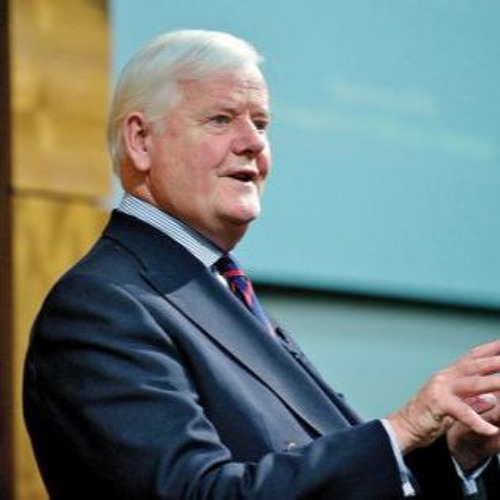
The Call to Follow Christ: Os Guinness, Part 2
I’m posting a series of blogs from an excellent interview with Os Guinness titled “Rediscovering ‘Calling’ Will Revitalize Church and Society.” (Check out part 1 if you missed it.) In this excerpt, Os talks about his book The Call, which I highly recommend.
First published in 1997 by distinguished author and speaker Os Guiness, The Call remains a treasured source of wisdom for those who ask these questions. According to Guinness, 'No idea short of God's call can ground and fulfill the truest human desire for purpose and fulfillment.' “Interestingly, God's remedy for Elijah's depression was not a refresher course in theology but food.
R&L: In the first chapter of your book, The Call, you mention that you have been reflecting on the concept of calling for nearly twenty-five years. Why does this concept so appeal to you, and why did you write this book?

Guinness: On a personal level, it was the concept of calling that helped me discover my own purpose in life. Furthermore, in my travels through the English-speaking world, the questions I have been asked most frequently have to do with calling. All across the West today, people are seeking a deeper sense of individual purpose.
The Call Os Guinness Review
As Fyodor Dostoyevski put it, “The secret of man’s being is not only to live, but to live for something definite.” Or as Søren Kierkegaard put it, “The goal is to find the idea for which I can live and die.” I come across such longing in people again and again, and there is no question that the Call is this longing’s deepest answer.


R&L: How do you define “the Call”?
Guinness: Simply put, the Call is the idea that God calls us to Himself so decisively that everything we are, everything we have, and everything we do is invested with a dynamism and a devotion because it is done as a response to His summons. In other words, those two words of Jesus Christ—“Follow me”— changed the world as millions since have risen up to follow His call.
R&L: In the book, you note two primary distortions of the concept of calling. Can you elaborate on them?
Guinness: Over the course of the past two thousand years, the concept of calling has been distorted in two ways. I label these—although this is slightly unfair—the Catholic distortion and the Protestant distortion, and both are reflections of a spiritual/secular dualism.

The Catholic distortion is the idea that spiritual things are higher than secular things; so, calling is reserved for monks, nuns, and priests, and lay people are let off the hook, so to speak. This idea was introduced first by Eusebius, Bishop of Caesarea, and was picked up by great thinkers like Augustine and Aquinas.
The Protestant distortion is the other way around. Both Martin Luther and John Calvin taught that calling includes your work, but about one hundred fifty years after the early Puritans, we see the words calling and vocation become merely synonyms for work and employment. Over time, that was distorted until it came to be seen that one’s work simply was his calling. So, we have a situation where calling is being secularized and work is being sacralized.
Source: 'Rediscovering 'Calling' Will Revitalize Church and Society.' Religion & Liberty. 8.4 (1998): 1-4.
The Call Os Guinness Chapter Summary
Randy Alcorn (@randyalcorn) is the author of fifty-some books and the founder and director of Eternal Perspective Ministries.